K. Mathur's Blog
June 20, 2021
Kids More Accepting Than Adults
Youngsters all over the world seem to be more accepting than adults.
Take this video, for example.
What struck me was
the overwhelming support from kids in the audience, and
that Zachary knew as young as age nine what his sexual orientation was.
This is what Pete Buttigieg said to Zachary. It was honest, straight from the heart and sound advice
https://www.facebook.com/brutamerica/posts/2387090828256089
As someone in the audience said, "Wish someone like Pete was around when I came out 50yrs ago. Not many supportive people around then. My partner and I were together 38yrs and had many struggles in our lives... He passed away 6 months ago. I'm very sad and miss him dearly though I continue on with strength that's encouraged by people such as Pete and Zack. Thank you for such bravery and support
 "
"
Got to Love Those American Kids
Wise words from Pete Buttigieg to young Zacchery. (Hope I spelt his name correctly)
What struck me was the strong support from the American kids. Youngsters all over the world seem to be more accepting than adults. Another thing that struck me was that Zacchery knew as young as age nine what his orientation was.
Watch
https://www.facebook.com/brutamerica/...
September 6, 2018
IMPERFECT HUMANS OF MUMBAI
 As I walked to work
As I walked to workfrom Bandra station, I often slowed down to watch the boy. He waited at the
main signal at Linking road, with a gaggle of others, for the lights to turn
red. He was tiny but held his own amongst his peers of varying ages.
As I approached the
lights I stopped to buy peanuts from a vendor who kept them hot and crisp under
an earthenware pot, a sigri, of sand on
hot coal. As the man expertly twisted a piece of paper into a cone, a puda, for my peanuts, I couldn’t help
listening in to what those kids were saying.
“They’re hosting a
free lunch at Seva Sadan,” said one
in Hindi.
“Let’s go and eat till
our stomachs are good and full,” the young one, about seven, said. “Who knows
when our next meal will be.”
He eyed his crowd,
hoping they’d approve of his cool cynicism. They were all grinning indulgently.
The oldest, a scrawny teenager, slightly hunched and as emaciated as the rest, gave
him an affectionate swipe.
I couldn’t help an
inward smile. When the lights turned red, the boy swiftly picked out a likely
prospect and darted across to reach her before the others did. She was in an
auto.
“Twenty rupees,
madam,” I heard him say.
The woman ignored him,
staring straight ahead. Undeterred, he repeated his plea, going as close as he
dared. She pretended to look through him.
“Okay,” he said, as if
acknowledging the hard bargain she drove. “Ten rupees. Only ten.”
He smiled at her, face
tilted to one side, coaxing her to agree it was a reasonable compromise.
She continued to
ignore him but her lips twitched.
The tension went out
of his little body. He turned to look triumphantly at the older boy who was
standing watchful, at the traffic lights. The teenager gave him a half wave of
acknowledgement.
The lights were still
red when a hundred engines revved and began edging forward. The boy started
running ahead of the auto, knowing it would leap away within seconds. If she was
going to cough up it would be at the last second. Any earlier and she’d be
swamped by other beggars. He raised his voice.
“Only ten, madam.”
As she sped away, she
leaned right out. Hands outstretched they completed the exchange. She was
smiling broadly but he had already forgotten her. He looked down at his booty
and hastily zigzagged between vehicles that had picked up speed. Reaching
safety, he handed the coins over to his scrawny companion at the lights, who
swiftly pocketed them.
Filled with resentment
I watched, thinking typical uncharitable thoughts of a typical, privileged
Mumbaikar. The man has perfectly good limbs. Why doesn’t he get himself a job? Earn his own ten rupees?
Slightly ashamed, I
grudgingly conceded nobody would give such an unkempt, unknown entity a job. I
wouldn’t.
At least, he and his
kind provided much needed protection to their tiny wards in exchange for
controlling the cash, I thought.
#
That evening, at
dinner, I told the family about the boy and how the lady in the auto had found
him irresistible.
“The rascal could
probably teach psychologists a thing or two,” dad said, amid laughter.
“What’s a
psychologist?” said our six year old.
“Well,” said dad,
“just as doctors know everything about our bodies a psychologist knows about
our minds.”
She was our adopted
child and couldn’t have been more loved had she been our own flesh and blood.
That’s who he reminds
me of, I thought. He reminds me of Smita when we first saw her. She was ever
willing to smile and laugh but her eyes remained haunted. All four of us were
aware of that look and it broke our hearts. It had taken years of care and
attention to get rid of it from her little face.
#
A few days later, on
my way from Bandra station, I saw him again. I was disturbed to see a change in
that bright face. He winced as he hobbled to a customer. His heart was not in
his begging, and the man in the taxi ignored him. As the taxi went off, the boy
glanced fearfully at his scowling warden.
This time I kept mum
at the table, hoping nobody would notice how disturbed I felt. After dinner, we
played with Smita for a while before putting her to bed. We kissed her and bade
our parents goodnight. Alone in our room at last, I told Ashraf about the boy.
“To me he looked like
he’d been abused,” I said, my voice low, even if everyone had retired for the
night.
When he did not
respond, I said, “You know, sexually.”
“What?” Ashraf said in
disbelief. “No. How could you tell?”
“He was walking
awkwardly, for one.”
“Could be anything. A
boil on his inner thigh.” Ashraf smiled in that annoyingly superior way he had.
I felt irritated. Why
was he so keen to gloss over this? Didn’t he remember pictures of our new-born
Smita? She looked like a large insect with thin, spindly limbs and a rib cage
that looked like an exoskeleton. She had been left near a garbage dump. They
told us bluntly, had they been a few minutes late she would have been eaten by
rats. They had rescued her and brought her to the orphanage. They had nurtured
her back to health before putting her up for adoption. Our darling daughter,
our healthy, intelligent and smart Smita. It still made me sick to think of how
close we had come to not having her in our lives.
“Yes. Could be,” I
said to Ashraf, “except, when he handed over the cash he did not meet the eyes
of the older boy. And when that boy grabbed his hand and laughed, he flinched.”
This time Ashraf was
silent.
“We can’t interfere,”
he said at last.
When he saw I was
about to protest, he amended that quickly. “Okay, why don’t I come with you to
Bandra tomorrow? See for myself?”
I nodded, not sure
myself, what would come of it. It really wasn’t our problem. But he was such a
tiny creature, helpless and yet so cheerful. We couldn’t not do anything. My
last thought as I drifted off was, wonder what they are doing to him right now.
At six in the morning
I heard the muted tones of the alarm. I hadn’t slept well and gave an inward
groan. Already?
Loathe to move, I
listened, knowing it would grow louder and more persistent. A second before that
happened, I flipped an arm over, eyes still closed. After a little fumbling I
managed to turn the ruddy thing off. Bringing my arm back I sighed and put it
around Ashraf. Snuggling close, I burrowed my face in his neck, inhaling deeply.
He smelt faintly of soap and I loved that. I moved drugged lips against his
warm skin. He stirred.
“Mmm,” he said, “don’t
stop.”
Soon we were both too
far gone to even think of stopping. For a long moment after, the room was
filled with only the sounds of our heavy breathing. As we slowly landed back on
earth I opened my eyes. Disturbed night forgotten, I stretched. Years together
and we still enjoyed one another. We had so much to be thankful for.
Ashraf and I were
married in 2003. With Smita’s arrival we became a family. She changed
everything. The company Ashraf worked for, actually gave him paternity leave.
We were gobsmacked, but grateful. We did not know such a forward looking
company existed in India.
With Ashraf at home
for a month, mum and he bonded. What was especially rewarding was that our
efforts to reach out to our neighbours paid off. Take Mrs. Makhijani. In the
old days, whenever she saw us, she hurried in the opposite direction, her face
suggesting we were sin incarnate. I always pretended I hadn’t seen her but
Ashraf yelled out greetings just to get under her skin. After she was out of
sight we would amuse ourselves, imagining the debauchery she thought we could
be getting up to in our bedroom.
“I’m sure she gets
titillated by thoughts of our tangled limbs.” Being out in the open we’d
conduct such conversations with serious faces.
“Never mind her. Stop
titillating me.”
“Well, if we weren’t
so desperate to appear staid I’d invite you right back up for some more
leg-tangling.”
After adopting Smita,
whenever we took her downstairs for some fresh air, Mrs. Makhijani couldn’t
keep away. She went out of her way to seek us out. She coo-ed to our daughter,
laughing in delight as our baby chortled and gurgled at her attempts to
entertain her. We stood by like the proud parents we were.
She saw us worry when
Smita was sick, and advised us on what to do for the baby’s colic. She
exclaimed at how intelligent she thought our little one was. We didn’t
disagree.
Smita’s favourite game
was twenty questions. We asked her random general knowledge questions, which
she attempted to answer. We often played the game downstairs with the other
kids from our building joining in. We became very popular. Their favourite
uncles.
Before her third
birthday we knew people had stopped mistrusting us for being different. We were
devoted dads first and a gay couple afterwards. For our daughter’s sake we were
never affectionate in public. It had been so hard getting her into our lives,
it was unbearable to think of losing her.
When we decided we
were ready to adopt a child, the Central Adoption Resource Agency (CARA),
which regulates adoptions, slammed a new ruling stipulating that same sex
couples wouldn’t be allowed to adopt. Our protests were to no avail.
Were they afraid our
adopted children would become gay? Or that we were child molesters? Didn’t they
know one is either born gay, or not? That nobody can influence sexual
orientation? As for molesting a child, don’t they know that comes from someone
who is cruelly uncaring of a child’s feelings or fears? Not from being gay?
They didn’t care. The
ignorance! The prejudice! We railed in private, not daring to voice our
feelings in public.
Ma and pa quietly adopted
Smita.
When we invited toddlers from the
building for her third birthday party, we made it a point to invite Mrs.
Makhijani. She was a lonely old widow, after all.
I think she enjoyed
the party almost as much as everyone else. As for our darling, her portrait
hangs in the lounge, a happy smile and a huge smear of chocolate across her
face, a confident arm around each dad, forever reminding us of the adorable
little toddler she was.
She is growing up much
too fast, we both had started exclaiming often.
#
At around half past
seven she burst into the room, demanding attention. She clambered all over us,
crumpling our office shirts.
“How’s our little
girl? Slept well?”
“Anita said in class
yesterday, that her uncle used to cut frogs and cockroaches to become a
doctor.”
“That must have been a
long time ago. We use computers today. We don’t dissect real frogs anymore.” As
she absorbed that Ashraf stroked her hair.
“Papa,” she said,
impatiently moving her head out of his reach, “you’re spoiling my hair.” Ashraf
grinned at me over her head. “Oh, sorry darling. Mustn’t muss up your hair. Who
combed it for you today?”
“I did.” Who else? her
voice suggested.
“Of course. Silly me.”
“Do you like my
bobpin? It is shaped like the Indian flag.”
“So it is. It looks
lovely.”
She jumped off and
went to kneel at the bookshelf. The bottom shelf was hers. As she picked up one
of her books she said, “I want to be a psychono…” As she stumbled over the word
she looked up, frowning.
“…logist,” I
said. “Psychologist.”
“Wow. Great,” said
Ashraf, with a hasty glance at me. The word had reminded us of the boy. I was
looking forward to, and dreading, what we would find at the signal today.
“Hope I’m mistaken,” I
couldn’t help murmuring as we approached the signal. Then I saw him.
“The boy in the blue
shirt,” I said to Ashraf, feeling my gut twist. The older boy was holding him
apart from the others in a vice like grip. When the signal changed he gave the
boy a push. The little fellow darted a quick, scared look at his older
companion and limped off to beg.
Ashraf and I walked
on. His face was pale. “What should we do?”
“What can we do?” I
felt angry and helpless.
“Nothing, really.”
“Should we just ignore
it, then?”
“I suppose.”
Feeling miserable, we
stood digesting our helplessness before going off to our respective jobs.
Ashraf texted me that
afternoon. “Have an idea. Talk later.”
I knew he meant the
boy. Hope rekindled in my heart. That night, we couldn’t wait to discuss the
boy. We had to do something. But what? When we sat down to seriously think
about it, there was no shortage of ideas. One thing was clear to both of us.
The police were out. We didn't trust them.
In the end, we decided
we would speak to someone at the orphanage we’d adopted Smita from. We did not know what we would say or who we
would say it to. We’d suss that out once we got there.
We did not confide in
my parents. We knew the objections we’d face. We were being irresponsible to
our daughter. “If the orphanage realises she is in a gay household they might
decide to take her away.”
We understood their
fears. Especially now, the Supreme Court had done an about face, taking away
our right to marriage. There had been a huge outpouring of support on social
media with everyone draping their id photos in rainbow colours, but we were not
sure how deep the support really went. If some power crazed, homophobic
individuals decided to take away our girl, or lock us up in a police cell or
beat us up for being gay, who would object? We were under no illusions.
The only thing we
could, and did, do for Smita’s sake, was to ensure some friends and neighbours
really got to know us. We enjoyed getting to know them too. Smita was made to
feel welcome by them. And we felt she was safe with them.
How we had changed.
When we were young and single, we hadn’t given a damn.
The next morning, we
pretended to go off to work as usual. At the orphanage, we spoke to a Mrs.
Kapadia, a kindly old lady. We brought up the topic of the boy as soon as we
decently could. We told her about our suspicions. We stopped short of the
words, ‘sexual harassment’, but she seemed to understand. She said we’d done
the right thing.
She sent us away with
the promise that the orphanage would look into the case. They would interview
the boy, gather data and make a decision within a couple of days. She said
she’d keep us informed. We left the orphanage in a happier state of mind than
when we’d arrived.
#
According to the
United Nations there are 2.5 lakh homeless kids living on the streets of
Mumbai. We hoped we’d taken one off.
#
From the Author: The idea behind my story is to show
there’s more to LGBT+ individuals than their sexual orientation and that they
are like any other thinking / feeling human beings.
The young street kid in my story bears a distinct resemblance to one from a documentary I'd watched. I asked, and was granted permission by the Aletheia foundation to use him in my story.
October 17, 2016
Does The LGBT Community Stereotype Straights?

One usually hears of the heterosexual majority stereotyping the LGBT community, but recently I've seen some in the LGBT community hitting back. Here’s what I’ve heard them say. Heterosexuals are, among other
things, boring, stupid, loud mouthed and ignorant
It is smart to have 'attitude'. Laughter is a great
antidote to and a release from centuries of having to swallow the anger and misery heterosexuals have put you through. Not only have they been ignorant, they've been indifferent to the pain they've inflicted through that ignorance. Their prejudice has meant your having to face their secret sniggers. Pay-back is gratifying.
Some heterosexuals deserve everything you give. They choose to remain obnoxious and close-minded even today, in the age of the internet.
What about the rest? The best way to get them on board is to remain approachable; to engage with them.
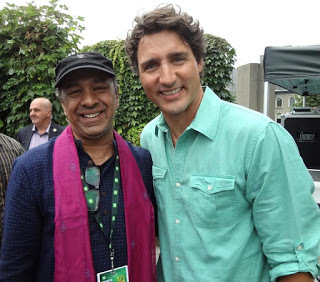
Sridhar Rangayan - LGBT rights activist
and Justin Trudeau - Canadian PM
The image above is a prime example of two individuals who are great role models. One needs no introduction. The other, Sridhar Rangayan, is well known within the homosexual community. He has worked tirelessly to promote the cause. He has addressed the prejudice, ignorance and fear
relentlessly, but politely, and with a lot of patience. His passion is to make movies with LGBT themes so people understand what homosexual individuals go through at the hands of heterosexuals.
If 7% of the population is homosexual and 93% heterosexual, he knows he needs to get sympathetic heterosexuals - and there are many, on board.
He has read the unspoken messages in the eyes of ignorant and prejudiced individuals a million times more than many young homosexuals. The, ‘Oh, how odd. He likes men/she likes women.’ kind. And yet, he prefers to remain approachable.
We all know that this perception of your sexual preferences being odd, has got to go. We've seen how it colours every thought and action of many whose likes are more mainstream. Thinking of the homosexual community along those lines is absurd. I've yet to come across two heterosexuals thinking in that cringe-worthy manner when they are introduced to one another. Why single out homosexuals for that 'honour'?
But changing this perception can happen only if the lines of communication are open. There is humanity on all sides and there are some who will understand, like the other man in the photo - Justin Trudeau, the Canadian Prime Minister.
You've just got to reach out. You need to help
people see that someone's sexual orientation is what it is. It is nothing against nature. And there is more depth, complexities and layers beyond, that should be their primary concern.
So, go ahead. Call us ignorant, stupid or prejudiced.

Just let it remain within the realm of harmless fun. Okay?
Sridhar's Facebook link - a lot of support at this link for homosexuals. Huge support from Friends of Homosexuals here, too.
All images from here
Never Miss A Post. Receive New Posts (About one every couple of months) by Email
July 18, 2016
Deja Vu? Writing on the Wall?
A conversation between Maneck and a taxi driver.
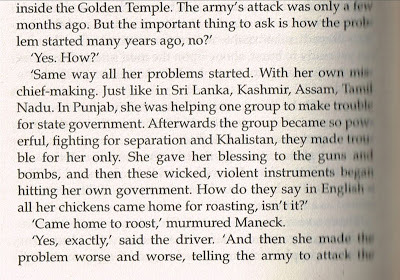
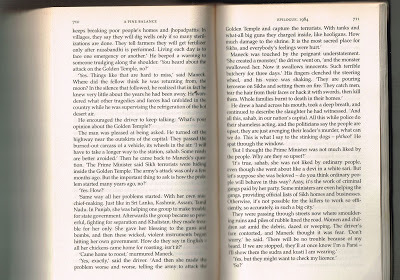
July 7, 2016
HOW WE UNCONSCIOUSLY SUPPORT HOMOPHOBIA
 Didn't I drape my profile picture on facebook in rainbow colours to support them?
Didn't I drape my profile picture on facebook in rainbow colours to support them? Do I ever abuse them orally or physically?
And don't I support their rights?'
In India, the majority do have a, 'live and let live' attitude. Most of us support the homosexual community, but there are more ways than outright abuse to harm our minority LGBT+ community. The major culprit is ignorance. And perhaps, indifference. We are heterosexual and homosexuality doesn't really concern us.
Today, I would like to show how it does concern us.
 If someone says, "It is unnatural,' do we feel forced to concede it is so? That is because we are ignorant. That is because many of us, inside our hearts believe it is unnatural. But more than that, it is because we haven't bothered to find out for ourselves and say with conviction it isn't. We've kept away. There is only so much support we are capable of giving.
If someone says, "It is unnatural,' do we feel forced to concede it is so? That is because we are ignorant. That is because many of us, inside our hearts believe it is unnatural. But more than that, it is because we haven't bothered to find out for ourselves and say with conviction it isn't. We've kept away. There is only so much support we are capable of giving.Unfortunately, such support falls into the hands of violent homophobes believing they can mentally or physically abuse homosexuals and get away with it.
If we read the plethora of information available online - information from reliable sources, if we spoke to LGBT individuals, asked them questions, if we genuinely tried to understand them, we would know that about 7% of the population is born homosexual. They are not capable of entering into a physical relationship with people of the opposite sex. And humans aren't the only ones. It happens throughout the animal kingdom.
Even if we know these facts, there's Bollywood and the way they portray the LGBT community that holds our unstinting support back. Here's one article on the subject
http://www.hindustantimes.com/bollywo...
Final thought,
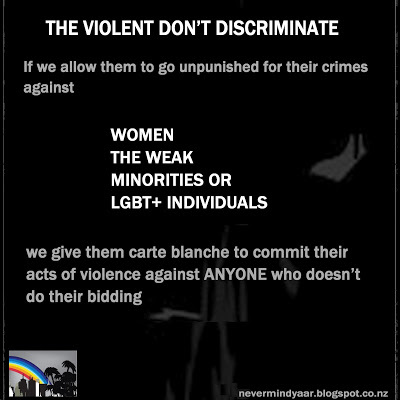
Receive posts by email. I write a maximum of about one a month or less. and only if I have something to share that I feel strongly about.
Your comments and feedback welcome. Feel free to share and if you do, please acknowledge this writer. Thanks.
.
April 15, 2016
Two Lesbian Women and I
In the old days I knew two women, both young, and in
their early twenties. Let’s just call them A and A.
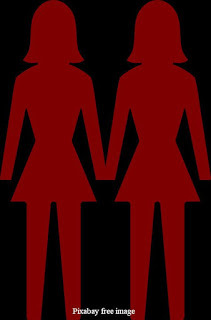 When I first came to know about their being lesbian,
When I first came to know about their being lesbian,I was shocked. I took it upon myself to try and talk them out of it. Feeling virtuous, I thought I would speak to them face to face. No back-biting from this girl!
I knocked on A's door and was
invited in. The other A was there. The rumours must be true, I thought. Being of a delicate disposition I asked them bluntly if they were a couple. Their faces went white. They didn't know what to say. Who would, in similar circumstances? Imagine an interfering old aunt asking a heterosexual couple something similar. That's how I must have come across to them.
(Of course, the recent case of the Mumbai police barging in on heterosexual couples checked into hotels, and carting them off to the chowki for questioning, making them pay fines to boot, defies every premise of a free society and consenting adults. Let's leave police being leveraged by leaders to 'mind our morals', for another day)
That the two As and I were more than just acquaintances meant they must have responded politely. I don't remember the exact words we exchanged as
this was long ago, in the seventies. I do remember entreating them earnestly, not to
deny two wonderful boys the opportunity of a lifetime of happiness with two
such wonderful girls.
I still remember being nonplussed by their simple and eloquent response. “But we are happy.”
My mind couldn't take that in. The argument went round and round. As far
as I remember, they weren't rude, nor were they angry. Hopefully, they sensed an absence of hatred or anger in me, too.
I was concerned and eager to make them see what I sincerely believed; that only members of the opposite
sex could make them happy.
I HAD NEVER HEARD OF, LEAVE ALONE SEEN, OTHERWISE.
in other words, mine was conviction borne of ignorance and it made
me incapable of listening. I know. I agree. I was dumb, foolish, young and ignorant. Mainly ignorant. I
They based their arguments on feelings of deep
love, each for the other.
I went away, disappointed that I hadn't convinced
them.
xxxxxxxx
There is a glut of information that is easily
accessible now. Yet, ignorance exists. Why? Too many people don’t wish
to go near that information. They don’t want to know either through a lack of interest or through fear of reprisals.
This is what I feel - the more engagement there is between heterosexuals and homosexuals, the less homophobes and their phobia will matter. The engagement could be through a movie or a book, an article or a Youtube video. It doesn't matter. It is time we joined the conversation.

#TimeWeJoinedTheConversation
In some countries, people
fear political parties that whip up sentiments against the LGBTQ community.
Fear keeps them quiet. They know individuals belonging to these parties believe they are above the law. They know these individuals are capable of violence if their will isn't done. As for those vocal homophobes, they have kept easygoing, non-interfering Indians mum for far too long.

Sexual Orientation Doesn't Matter. These are loving partners and
parents.
In India, I’ve seen a mix. The best are the
ones to whom someone’s sexual orientation doesn’t matter. They like people for their sense of humour or their thoughtfulness or knowledge of a particular subject or any number of reasons. In short, for who they are. The worst are the ones who feed on our ignorance and fear, not only to
whip up ugly sentiments against the LGBTQ community but to justify violent actions against them.
A and A, I am not as ignorant as I used to be. I
know people fall in love with others of the same or the opposite sex. I
remember you to be lovely, inside and out. I remember you to be kind and fun.
That is all that should have mattered. Forgive me.
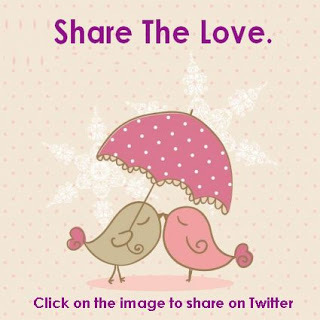
October 5, 2015
WHY READERS REMEMBER AUTHOR NAMES
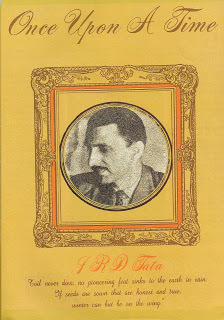
JRD in the diamond jubilee edition of 'Namaskar'
When I was an air hostess with Air India in the seventies under JRD Tata (before Morarji Desai thought fit to ‘fire’ him), we were proud to be called Air Indians. Not only was the training rigorous, as I am sure it is for new employees even today, everything spelt class. Our sarees and salwars showcased the best of India. Our caterers put a lot of thought and effort into preparing the menu. The wines and cheeses were carefully selected. On the whole, things ran smoothly for most flights with prompt action being taken by both, the ground staff and cabin crew, to ensure mistakes weren't repeated.
'Quality' was the buzz word, as was loyalty. We were happy and felt privileged to be employees of a mighty corporation. We were aware that benefits and privileges were shared by one and all. We had a medical department to look after every employee. We were secure, and sure our salaries, allowances and bonuses would be paid on time.
JRD was fired in 1978. I remember, most Indians were shocked, angry and upset.
Today, it is no secret that Air India is broke. We've all witnessed the gradual slide, none, more so, than insiders - people who work for the airline. To bring it down to cabin services level, let me give you a small example. Recently, I saw a little square of processed cheese wrapped in foil and accompanied by a single wilted (no exaggeration) lettuce leaf as part of the cheese platter. When we sat our food, wine and cheese tests or did the wet runs (explained as a footnote), I remember we had to know the names of twenty or thirty cheeses. I can only imagine the hot and embarrassed faces of the poor flying staff as they faced first class passengers with the "Air India Cheese Platter". It would have been better not to have served one at all.
Working for Air India under JRD Tata filled me with pride. Who chaired the airline after that? Don’t ask me. I quickly stake my claim to a poor memory. I've always suffered from Poor Memory Syndrome or PMS. BUT, I have no problems recalling the name, ‘JRD Tata’.
Which almost brings me to the point of this post and I hope you've enjoyed the detour.
In those days, a minuscule part of our service was addressing first class passengers by name.
Having a constant flow of passengers, three boarding at Bombay (as it was known then), two getting off at Delhi, but five getting on, it was a constant challenge to remember their names. I solved the problem by having a little scrap of paper concealed behind the bar in the cabin, with names and seat numbers of my passengers. I have no idea what my passengers thought of my frequent detours to the bar.
How is all that connected to an author's name? Today, when I pick up a novel, I still suffer from PMS for most author names. My PMS is worse because, not only am I older, there are far too many author names, some eminently forgettable, to remember. Everyone has a story to tell and many, without making the effort to learn at least a few basic tools to tell it well.
If I reach a point in a book where I feel I am exactly where I want to be, right there, alongside those very characters, I feel a strong urge to pause and savour the moment. I flip the book over and remind myself of the author’s identity.
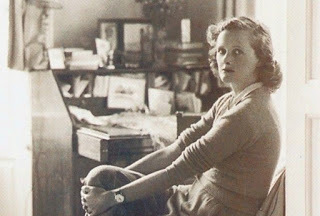
Daphne du Maurier
Who is it again, whose words are so wise, so thoughtful, amusing or clever? Whose words break my heart? Whose diabolical plot has me worried for their character’s safety?
Take the first Morris Gleitzman I read, "Two Weeks With The Queen." It had me laughing helplessly even as I felt choked with emotion. I loved what he wrote and especially what he left unsaid. Genius.
For me, that is what’s in an author’s name. It is the one name, out of millions, that is worth remembering.
It is the author whose work evokes enjoyment, appreciation and respect.
Wet Runs - An exciting part of our training when the service on board is emulated in the mockup at training school. Most of us pretended to be passengers. Two trainee airhostesses and two trainee pursers do the entire first class lunch or dinner service with real food and real bottles of wines filled (sadly) with water.
To share on fb, twitter and G+. Click on the icons below. Thanks.
WHY READERS REMEMBER AUTHOR NAMES
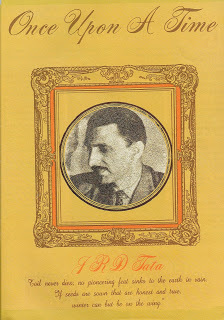
JRD in the diamond jubilee edition of 'Namaskar'
When I was an air hostess with Air India in the seventies under JRD Tata (before Morarji Desai thought fit to ‘fire’ him), we were proud to be called Air Indians. Not only was the training rigorous, as I am sure it is for new employees even today, everything spelt class. Our sarees and salwars showcased the best of India. Our caterers put a lot of thought and effort into preparing the menu. The wines and cheeses were carefully selected. On the whole, things ran smoothly for most flights with prompt action being taken by both, the ground staff and cabin crew, to ensure mistakes weren't repeated.
'Quality' was the buzz word, as was loyalty. We were happy and felt privileged to be employees of a mighty corporation. We were aware that benefits and privileges were shared by one and all. We had a medical department to look after every employee. We were secure, and sure our salaries, allowances and bonuses would be paid on time.
JRD was fired in 1978. I remember, most Indians were shocked, angry and upset.
Today, it is no secret that Air India is broke. We've all witnessed the gradual slide, none, more so, than insiders - people who work for the airline. To bring it down to cabin services level, let me give you a small example. Recently, I saw a little square of processed cheese wrapped in foil and accompanied by a single wilted (no exaggeration) lettuce leaf as part of the cheese platter. I can only imagine the hot and embarrassed faces of the poor flying staff as they faced first class passengers with the "Air India Cheese Platter". It would have been better not to have served one at all.
Working for Air India under JRD Tata filled me with pride. Who chaired the airline after that? Don’t ask me. I quickly stake my claim to a poor memory. I've always suffered from Poor Memory Syndrome or PMS. BUT, I have no problems recalling the name, ‘JRD Tata’.
Which almost brings me to the point of this post and I hope you've enjoyed the detour.
In those days, a minuscule part of our service was addressing first class passengers by name.
Having a constant flow of passengers, three boarding at Bombay (as it was known then), two getting off at Delhi, but five getting on, it was a constant challenge to remember their names. I solved the problem by having a little scrap of paper concealed behind the bar in the cabin, with names and seat numbers of my passengers. I have no idea what my passengers thought of my frequent detours to the bar.
How is all that connected to an author's name? Today, when I pick up a novel, I still suffer from PMS for most author names. My PMS is worse because, not only am I older, there are far too many author names, some eminently forgettable, to remember. Everyone has a story to tell and many, without making the effort to learn at least a few basic tools to tell it well.
If I reach a point in a book where I feel I am exactly where I want to be, right there, alongside those very characters, I feel a strong urge to pause and savour the moment. I flip the book over and remind myself of the author’s identity.
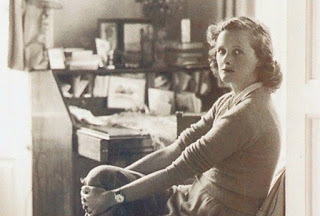
Daphne du Maurier
Who is it again, whose words are so wise, so thoughtful, amusing or clever? Whose words break my heart? Whose diabolical plot has me worried for their character’s safety?
For me, that is what’s in an author’s name. It is the one name, out of millions, that is worth remembering.
It is the author whose work evokes enjoyment, appreciation and respect.
September 25, 2015
Reviewers Who Help Sell Your Book
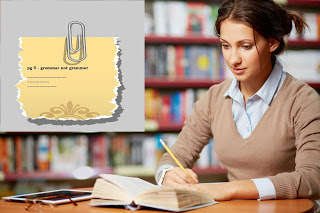 Book reviewers, to my mind, are the best publicity for a good book. Every author has an ideal reviewer - the one who praises their work to high heaven! Alas, as we know, a good reviewer writes reviews for potential readers, not for the author.
Book reviewers, to my mind, are the best publicity for a good book. Every author has an ideal reviewer - the one who praises their work to high heaven! Alas, as we know, a good reviewer writes reviews for potential readers, not for the author.Trying to break into a saturated book market isn't easy. How would you give your book every chance to stand out from the rest?
From the author’s perspective, the purpose of a review is
simply to let potential readers know whether the book is worth picking up or not.
Let me start with the pluses and minuses of going through Indian blogging platforms. They invite bloggers who belong to their platform to read and review your book.
The Advantages: They advertise your book well. Their reach is a huge plus. Unfortunately, I feel there are more disadvantages than advantages.
The major disadvantage is the way they pick reviewers. Whether these bloggers are capable of
doing a book review isn't a consideration. Often, the blogger's language
skills leave a lot to be desired. For a potential reader not to understand what
the reviewer is trying to say is, at best, an opportunity lost. At worst, the potential reader ends up ascribing the same language skills to the author and loses
interest in the book.
Till blogging platforms come up with stricter criteria for
reviewers, it is best for unknown authors to research and handpick their first
few reviewers. Besides, the service isn't free. The author pays a tidy sum to use the blogging platform to promote their book. (I don't know what publishers pay so am unable to comment.)
If you are not a well known author, if you are self published, the onus is on you to do the hard work and find your ideal reviewers. It is worth the effort.
Here's what to look for
He is well read.
Why? To have him discuss your style of writing, characterisation
and plot through comparisons with other authors would give potential readers a
good picture of what to expect from your book. Imagine someone saying, "The author's style reminds me of (a well known author's name)". What a coup that would be.

She is or Isn't Tactful.
It is a balancing act. Do look to see if your reviewer speaks with a tactful yet clear voice. You should know after reading the review whether she liked the book or not. If she did, it should reflect in her review. If she didn't, look to see if she hesitates to say so. A reviewer cannot be too kindly or too polite, nor should she try and play it safe. That isn't fair either to the author or the potential reader. Besides, it compromises her own
credibility.
He is unapologetic about having his likes, dislikes and opinions
The potential reader wants to know whether the reviewer enjoyed the book. A word of caution - be wary of reviewers who simply say, 'I loved/hated the book'.
'Why' is important. Why does he love or hate the book? What detracts from, or enhances, the overall plot for him? Why? A responsible reviewer always qualifies his opinions.
Her reviews aren’t
plagiarised.
They reflect HER thoughts about the book and no one else’s.
She reads the book from cover to cover and writes a review from her own perspective. No
one else’s. I’ve heard of people who read the first few pages of a book and search for reviews on Google before writing theirs.
More than that, it is common for reviewers to be intimidated by opinions of someone well known.
If the official reviewer from The New Yorker says the book is awful very few would dare say anything different. And yet, it is your job as the author to find reviewers who do just that.
Steer clear of the ones who do not have the courage of their convictions/likes/dislikes/opinions. A potential reader wants a variety of opinions, not just one that is
then copied and packaged differently by multiple reviewers.
I know of one such case. Someone, for whatever reason, wrote to say he wasn't even going to read a book as the
cover wasn’t good enough. Luckily for the author, someone else, who had already read
the book, responded by saying he had enjoyed the book. The result? Many reviewers said they enjoyed the book but the cover could have been better.
The Length
Nobody wants to read a book about a book. That might put a
potential reader off. In my opinion, a short, honest review is better than a long one.
The Style
I would pick someone who keeps the review simple and still
manages to give the potential reader a feel for the book. If the reviewer is
astute enough to understand and analyse in brief, the scope of the book, that is a definite plus.
A word of caution - Pick someone who reviews what the author has written and not what he feels the author should/shouldn't have explored.
The Genre
Just briefly, I wouldn't pick someone who likes Spy
Thrillers to review a Romance. Would you? If your book crosses genres, as many books seem to do in these modern times, you will find reviewers who enjoy multiple genres. It might be tougher, but not impossible.
I know of authors who have devised a system to pick good reviewers for their book launch but that is another post. A good ploy would be to read reviews of a book in your genre that you have read.
Final words: I am aware that some authors and publishers believe it is the number of reviews that count, not the quality. It is something to do with Amazon's algorithm. Let unknown authors make BOTH count.
It is beyond the scope of this post to tell reviewers how to do their job. It is to let new, or unknown authors understand the importance of picking their first few reviewers with care. At the same time, I believe it is important for ordinary people to write reviews. If they feel they have been able to take away something of value from this post, I would feel doubly rewarded.
My thoughts have turned to reviewers as I have completed the first draft of my second novel. The book is a sequel to "Never Mind Yaar."
A Sneak Peek: The young idealists are grown. Binaifer (Binny, for short,) is invited, along with her cousins, to her aunt's home in Mumbai. She has fond memories of Armaity House. The entire clan used to gather there for school holidays every December.
She is unable to forget her last holiday there. Her cousin Tehmton, fifteen at the time, had shared something so momentous with her she had been unable to forget it.
Now, ten years on, she is eager to find out how things have worked out for him.
Will Tehmton share his secret with the rest of the family? How will they take it? How does the family cope with the threats and crises that seem to keep following them everywhere? Is it anything to do with Tehmton's secret?
Characters in the story:
The four young cousins - the affectionate Binny, the irrepressible Roshni, the hero-worshipping Cyrus and the brooding Tehmton.
The extended family - the typically Parsi Sohrab uncle, jolly and foul mouthed. The elegant and mild mannered Armaity aunty, after whom the grand house is named.
As in many Mumbai homes, Rosy, the cook, Atmaram, the driver and general factotum, the mali, and the gurkha are very much part of Armaity aunty's household.
Tehmton is the main protagonist.





